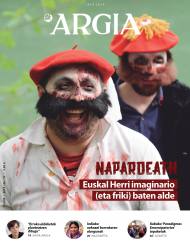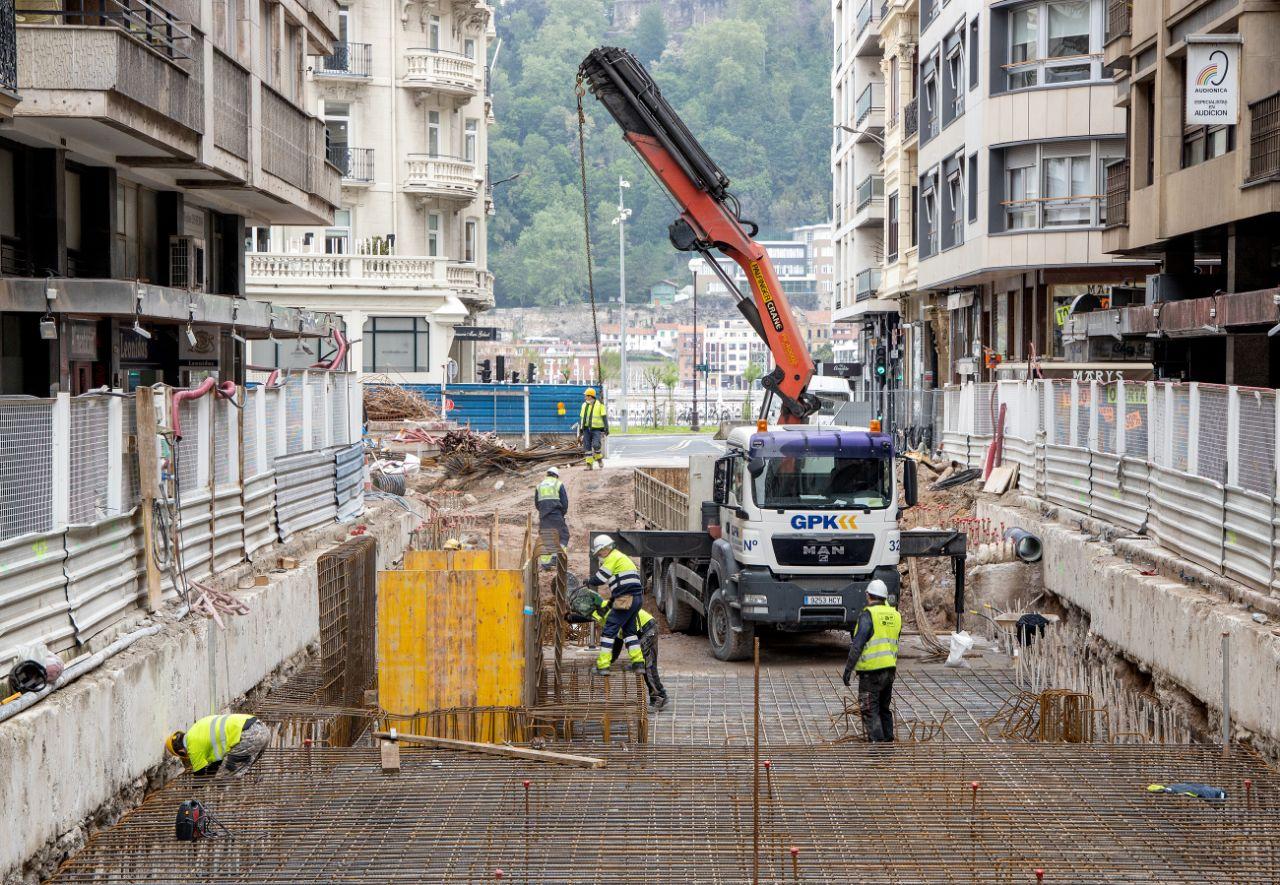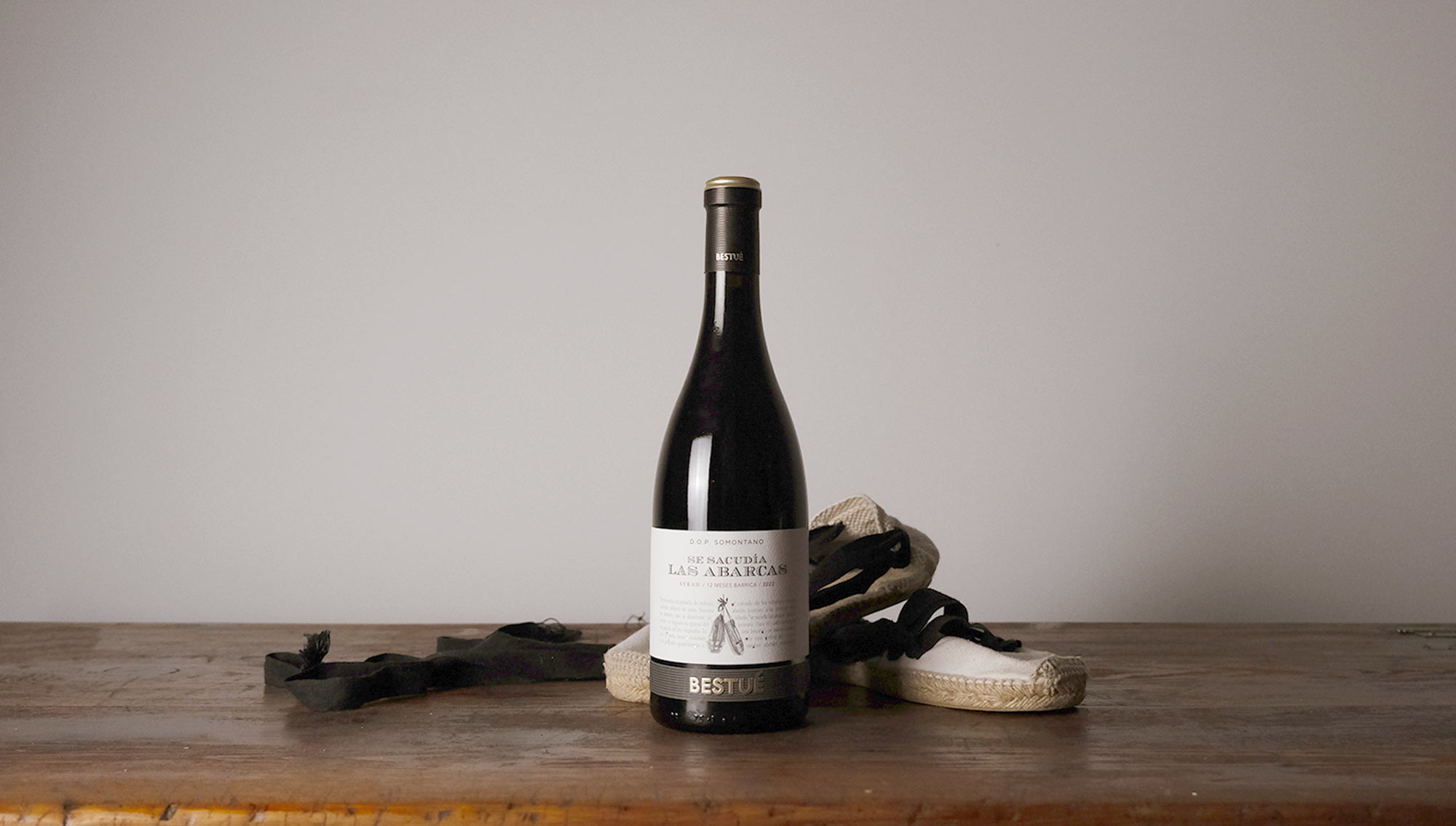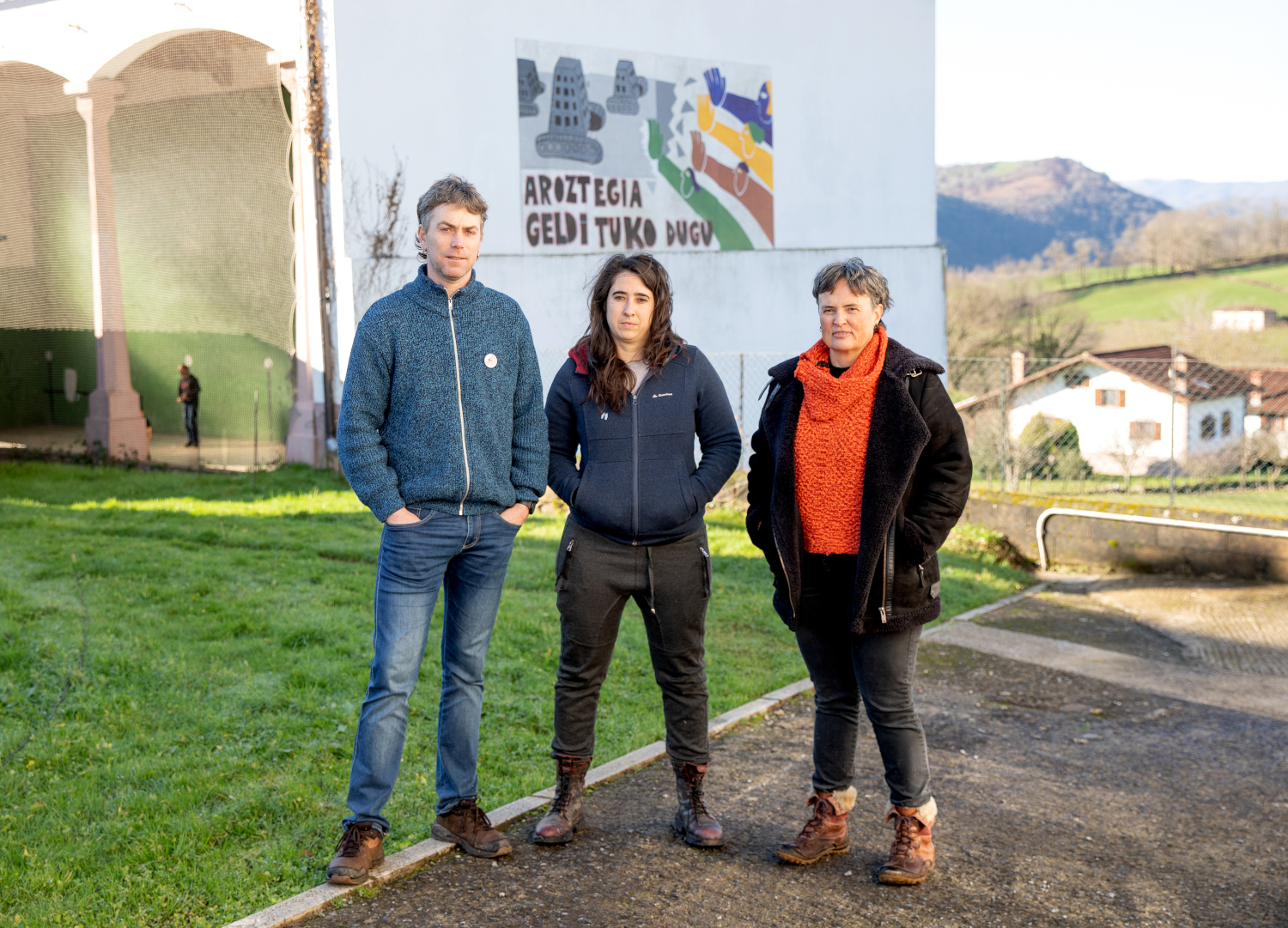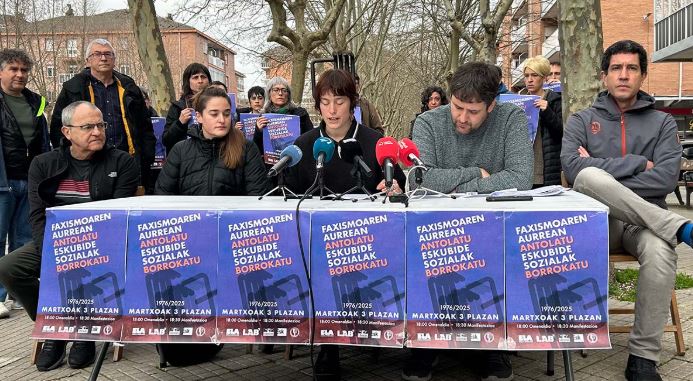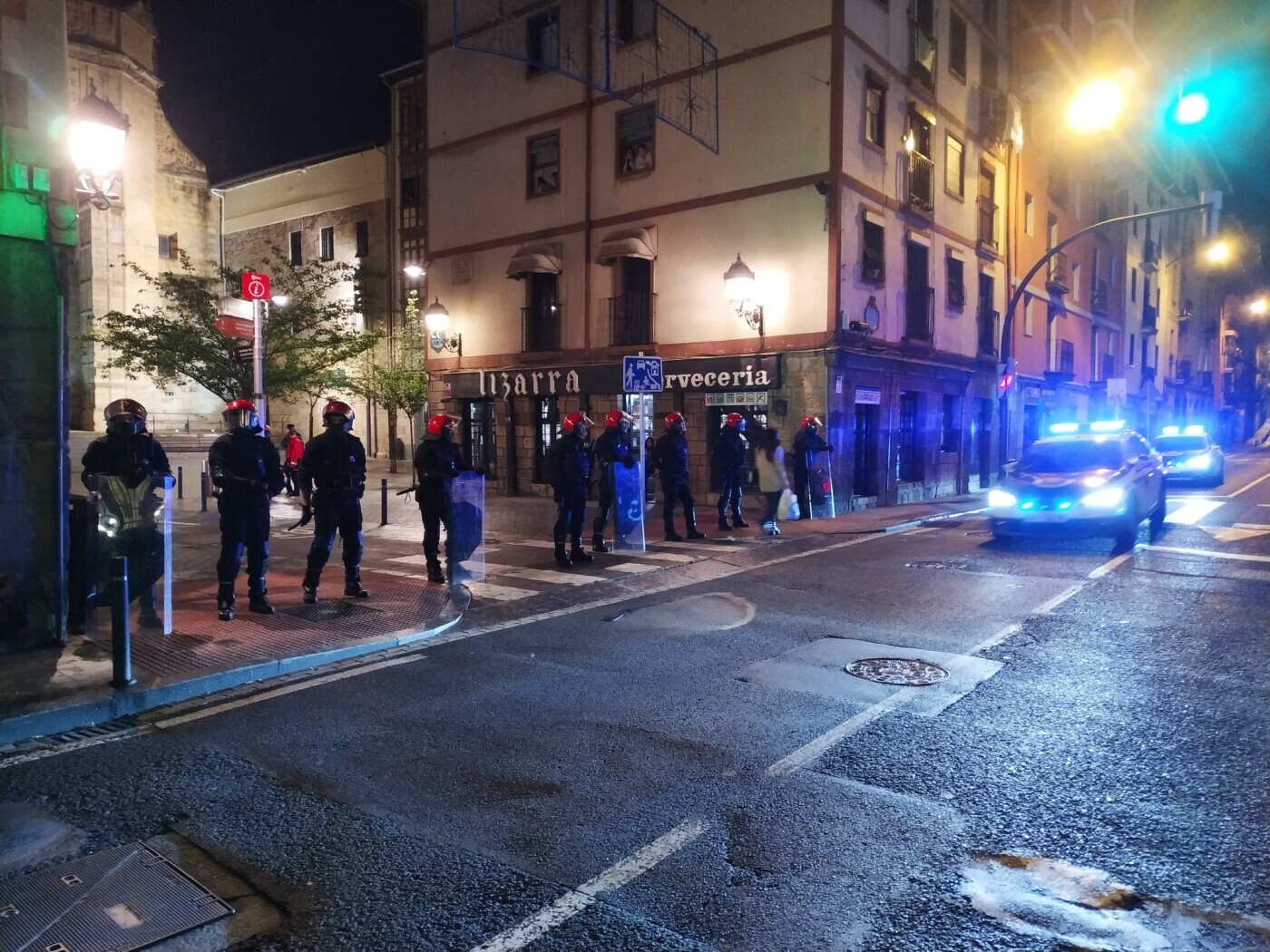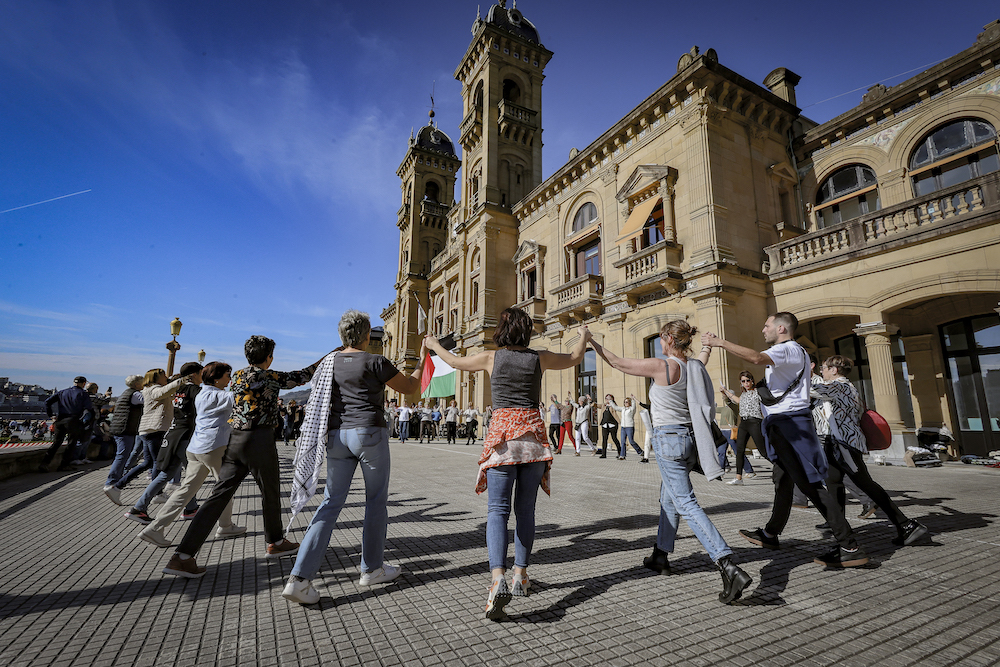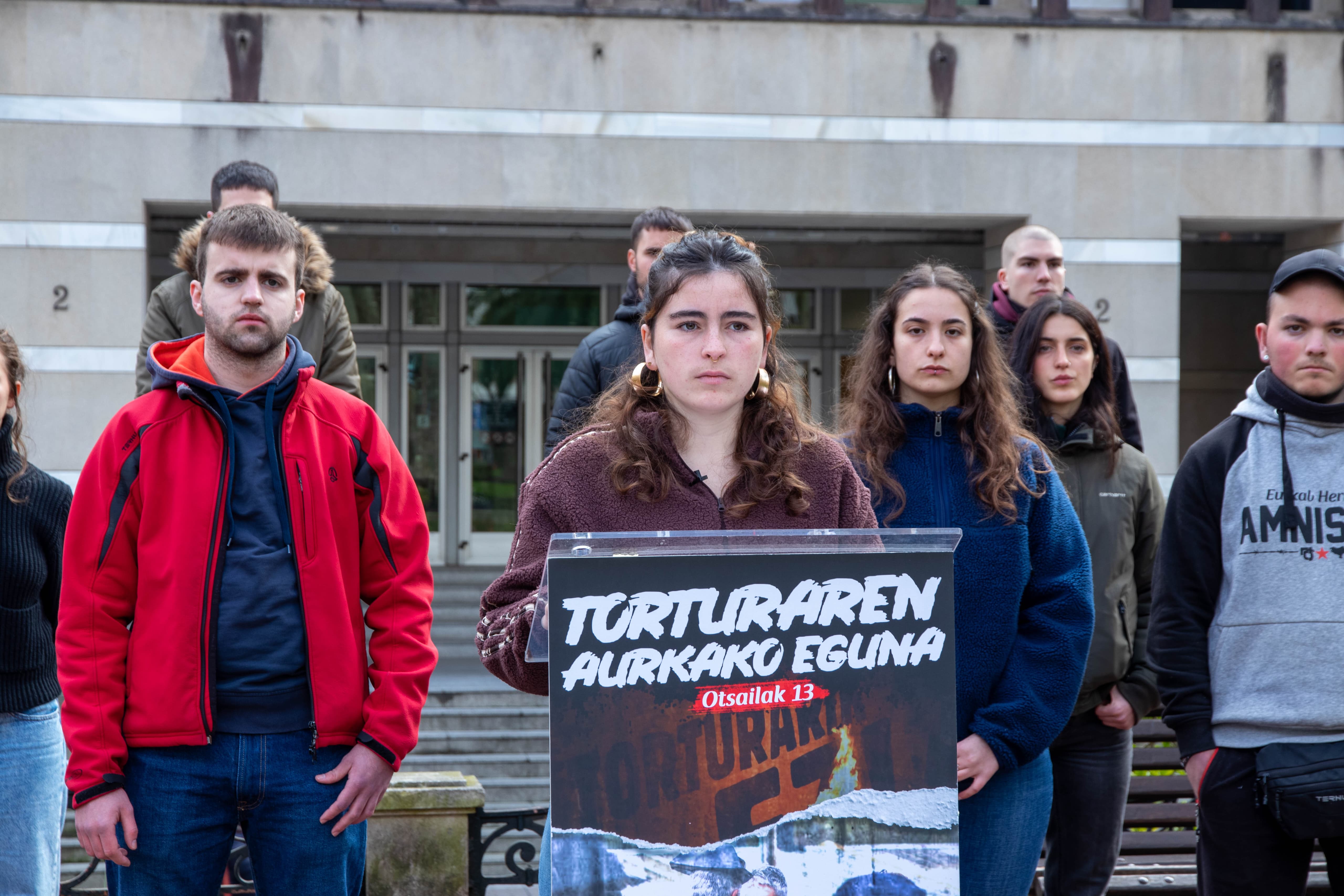"We want to share the inspiring keys we have brought from Cuba with the popular movements here"
- The thirteenth edition of the Emancipatory Paradigms international meetings took place this year in Cuba, at the beginning of the year. The event was born in Cuba in the 1990s, in a complex and dangerous phase after the fall of the Soviet Union, and has since been organized every two years. The appointment brings together activists and people linked to the academic environment of popular movements throughout South America and Central America with the objective of feeding and reflecting on the processes of emancipatory transformation. A small delegation of popular movements from Euskal Herria has been in Havana participating in Paradigmas, formed by members of Joxemi Zumalabe, Bizilur, Ipes, Emagine and the Ipar Hegoa foundation. We have come together with Miren Sainz Alzugaray from the Bizilur association and Gorka Zozaia García from the Ipes association.

The thirteenth edition of Paradigmas comes at a very special moment due to the rise of the right: Venezuela, Brazil, Colombia, Argentina... What has been done about the political situation?
Look at Sainz: Yes, it was on its agenda. The need for unity of the left in Latin America has been very present in the face of the fascist and right-wing movement that is now in place. For example, solidarity initiatives have been carried out in favor of the Brazilian campaign Lula Livre and Venezuela in Venezuela.
Has Havana thought about the causes of this rise on the right?
M. Sainz: One of the reasons that has emerged is that in the peoples who have been left-wing or progressive governments many people have gone from grass-roots movements to institutional policy. Consequently, the work with the base is not as it has been done before. This vacuum has been filled by the right in communities, meeting basic needs in their own way: through religion and deepening capitalist individualism, for example.
"In countries that have been progressive governments, many people have moved from popular movements to institutional policy. That vacuum has filled the right"
Miren Sainz
Gorka Zozaia: Geopolitical readings have also been carried out. That in that north, “in the plurality of units”, unity has failed. Like some of the readings we do here, we don't have a common horizon right now.
Beyond rational reflection, what mood have you felt in this complicated situation?
Dr. G. Draw: We've seen them very well. We have been together, sharing, by complicity, in those moments there is a positive atmosphere. At the same time, however, everyone is very concerned, both about the particular situation in his country and about the situation in Latin America and the Caribbean in general. They're living in very violent situations.
M. Sainz: There is such concern, but one of Paradigms' objectives is precisely that, to add forces, to breathe. We have insisted on the need for revolutionary self-esteem that responds to the complexity of the moment: to take account of where we came from and whether things have been done. A great deal of work has been done and we must appreciate that.
Dr. G. Draw: The work of the body has also given strength. There they have more way to go through this dimension. In the congresses here we spent a few days together, but without looking at the side, each locked in its particularity and individuality. Every day there were activities to get together, to sing, to make a group and to feel.
So let's look at the issues that you've addressed. What is the Multiple Domain System?
M. Sainz: A lot of work was done throughout the meeting. The concept itself was created in Paradigmas in 2008. The system of domination has many dimensions: capitalism, colonialism, heteropatriarchy, etc. Everything is bound, it is one, but in each area or space a different form is given. In some communities, dominance is performed mainly through religion, in others with extremism and international companies, in others feminicides are the most visible face of the monster.
.jpg)
The day to day has also been put in the center. You have talked about the colonization of everyday life.
Dr. G. Draw: I have been drawn to the attention that many relate Spanish, Spanish, daily life and colonialism (on the contrary, Spain is quite present among Cubans as Mother Fatherland). There has also been much talk about technology, about the individualistic way of life that is taking place. It has also been mentioned that some religious values are being introduced from below, in some camps left by the left. In general, we are internalizing right-wing values in our daily lives.
In recent decades indigenous and feminists have gained a great presence in Latin America. Have you noticed their reflection in Havana?
M. Sainz: Yes. Feminism has not been so explicitly mentioned, but feminist readings have been very present. As far as the numerical composition is concerned, perhaps some more women, there have been many women who have spoken, both as speakers, and in the turn of the open microphones. Although the methodology is not very popular in that sense, it had to rise up to 400 people. It has been noticed that in recent years feminism has gained a lot of strength. There have also been tensions, because feminism is present in how to integrate diversity in the construction of unity. Another disputed territory.
Dr. G. Draw: Yes, that tension has been evident. Some have chosen to reject some issues for the sake of “unity”, although not to say that they are secondary. There has been much tension in Venezuela with this “need” to act from the point of view of war. The indigenous struggles were not so present, but I remember a very critical indigenous friend from Mexico.
"We found it very opportune to abstract from Euskal Herria and Europe, to approach experiences that have been in political formation, and then to return to our country"
Gorka Zozaia
M. Sainz: The unity of the left of the paradigms has been valued from above and from the institutions, while they said: “Well, we build from the bottom up, we have a different vision.” However, at the close of the workshops, the goal was the Good Life in the fight against capitalism. The north comes from the indigenous conception of the world, but that Paradigmas has internalized as his own.
The Latin American left has historically had a Marxist base. How have the approaches and concerns we have mentioned so far influenced that basis? Have you moved it, fed it, adapted it?
Dr. G. Draw: Marxism has not been very explicit, but the interpretive framework of many speakers has been totally Marxist: in analysing the world situation or the starting point for understanding religion, for example.
M. Sainz: Much has been said about Cuba, and it is precisely in those days that a new Constitution has been signed. There have been many changes in the Constitution, in the economic sphere... The basis is socialism, but they adapt.
Why go from Euskal Herria to Havana to Latin American and Caribbean meetings?
M. Sainz: The proposal came from Joxemi Zumalabe and Bizilur. Joxemi started rethinking political education since 2013. Thus arises, among others, the Murtxikatuz course, whose objective is to renew the conception and practice of the political formation of popular movements. We developed a map to collect what each collective does in the field of training and what knots they perceive. The rapprochement of Paradigmas to Emancipatoria has been another step in that direction. The objective is to know and take inspiration from how and, above all, why the movements of Euskal Herria make political formation.
Dr. G. Draw: To this end, it has seemed very opportune to abstract us from Euskal Herria and from Europe and to approach experiences with a consolidated trajectory.
.jpg)
What would you highlight of the days? What should we learn and unlearn?
M. Sainz: That everything is training and that this training must be liberating, framed in a general political objective. We must also fight subjectivity and everyday life. Dispute common sense for power. Giving value to what we do, naming, that's revolutionary self-esteem.
Dr. G. Draw: I am very much aware of this, because it has come out many times in the days and in relations with the other institutions, as the Left has left the base. It has gone up, it has been institutionalised, and I believe that a similar phenomenon has also occurred in the Basque Country. In Cuba we have seen an experience that has drawn my attention to a great deal. A young dynamist who works political training in communities and neighborhoods. Someone might think: “Jo, these are already trained, that is the task of the State. Marxism I, II and III, leave very well trained from school...”. But, despite this, it is necessary to work from the ground to continue taking steps in socialism. I share that view, the need for basic training. In addition, I believe that in Euskal Herria we have a lot to sewing if we want to build unity in diversity.
Will you share what you have learned with more movements from the Basque Country?
M. Sainz: We are organising meetings for 18 and 19 October at the UEU in Eibar. The idea is to continue to delve into these reflections and share the inspiring keys with the popular movements here. From Latin America we will have three guests, members of movements who work hard in popular pedagogy and political training. We will open the public invitation at the end of June, but we will start to keep the date.
Satorralaiak plataformak eman du gainkostuaren berri, informazioa Jaurlaritzari eskatutako txosten batetik aterata. Donostiako metroaren Mirakontxa-Easo zatiaren lanak 53 milioi eurotan esleitu ziren, eta egungo aurrekontua 139,4 milioi eurokoa da. Donostiako metro-pasantearen... [+]
Miopia gero eta gehiago eta gero eta lehenago ari da garatzen, eta horren arriskua da dioptriak gehitzen joatea eta helduaroan begiari lotutako hainbat gaitz izateko aukerak dezente handitzea. “Eguzki-argia jasotzea inportantea da, eta denbora asko ez igarotzea oso gertu... [+]
Martxoaren 8an kalera ateratzera deitu ditu herritarrak mugimendu feministak, "desberdinkeriek bere horretan" dirautelako. Zapalkuntza mekanismo berriak agertu direla salatu dute, eta feminismoa "ezkerreko borroken erdigunera" eramateko beharra... [+]
Emakume bakoitzaren errelatotik abiatuta, lurrari eta elikadurari buruzko jakituria kolektibizatu eta sukaldeko iruditegia irauli nahi ditu Ziminttere proiektuak, mahai baten bueltan, sukaldean bertan eta elikagaiak eskutan darabiltzaten bitartean.
Ibon galdezka etorri zait Bizibaratzea.eus webguneko kontsultategira. Uda aurre horretan artoa (Zea mays) eta baba gorria (Phaseolus vulgaris) erein nahi ditu. “Arto” hitza grekotik dator eta oinarrizko jakia esan nahi du, artoa = ogia; arto edo panizo edo mileka... [+]
Istorioetan murgildu eta munduak eraikitzea gustuko du Iosune de Goñi García argazkilari, idazle eta itzultzaileak (Burlata, Nafarroa, 1993). Zaurietatik, gorputzetik eta minetik sortzen du askotan. Desgaitua eta gaixo kronikoa da, eta artea erabiltzen du... [+]
Ilbeltzeko igande goiz batez jo dugu Baztanera. Eguzkiak oraindik ez du Lekarozko plaza argitu; bertan elkartu gara Garbiñe Elizegi Narbarte, Itziar Torres Letona eta Ernesto Prat Urzainkirekin. Itzaletan hotz egiten du eta umorez goxatu dugu lehen agurra, hogei urtean... [+]









